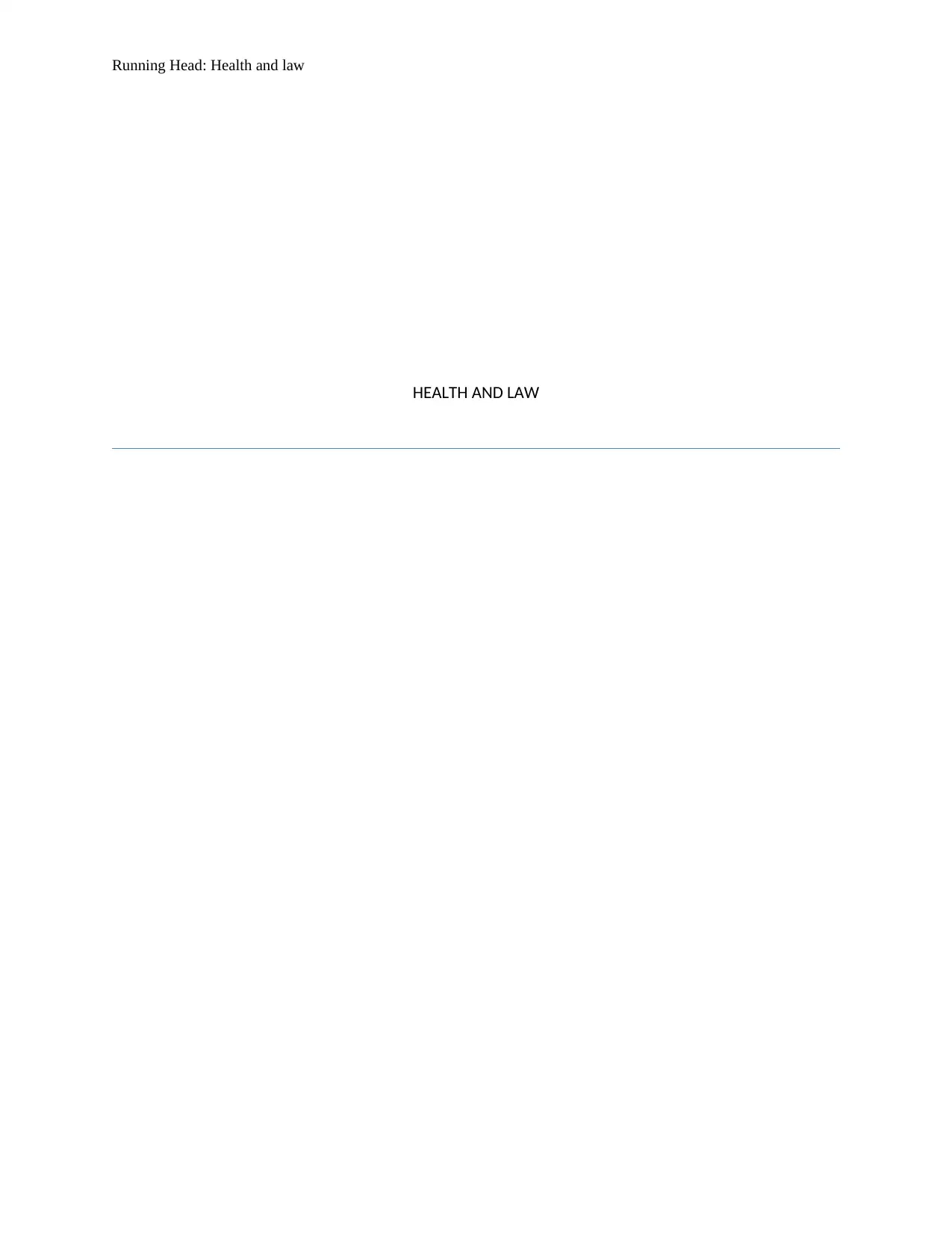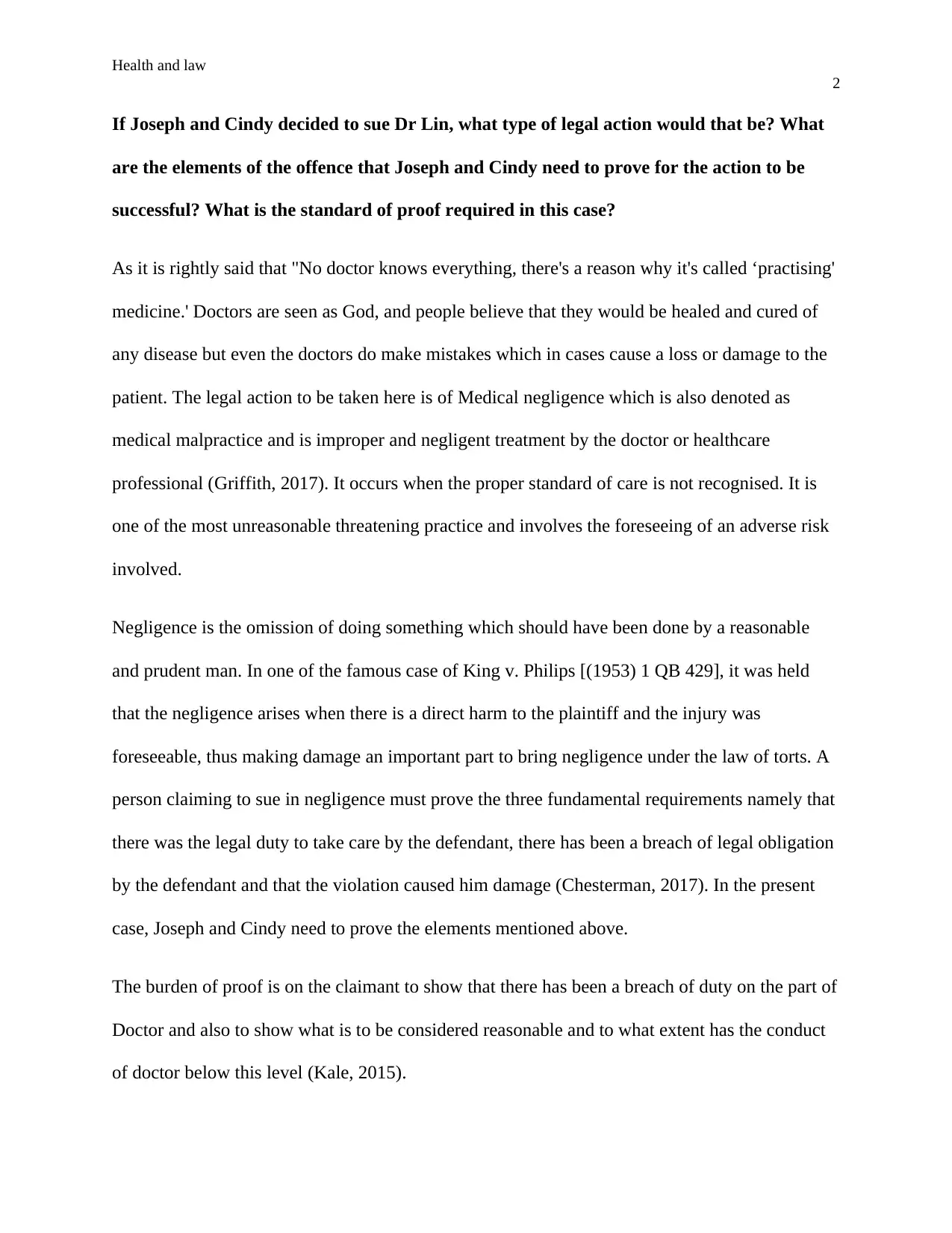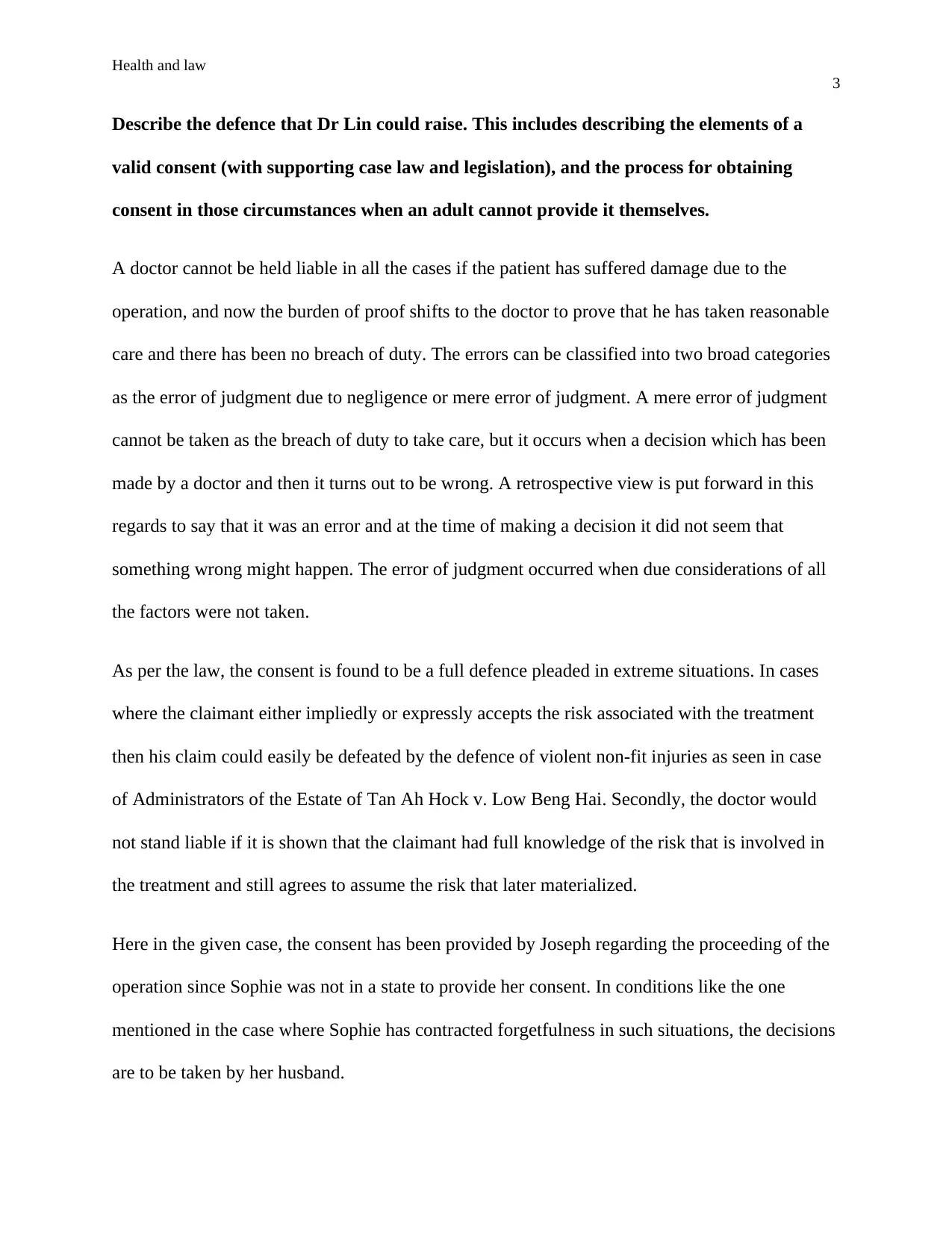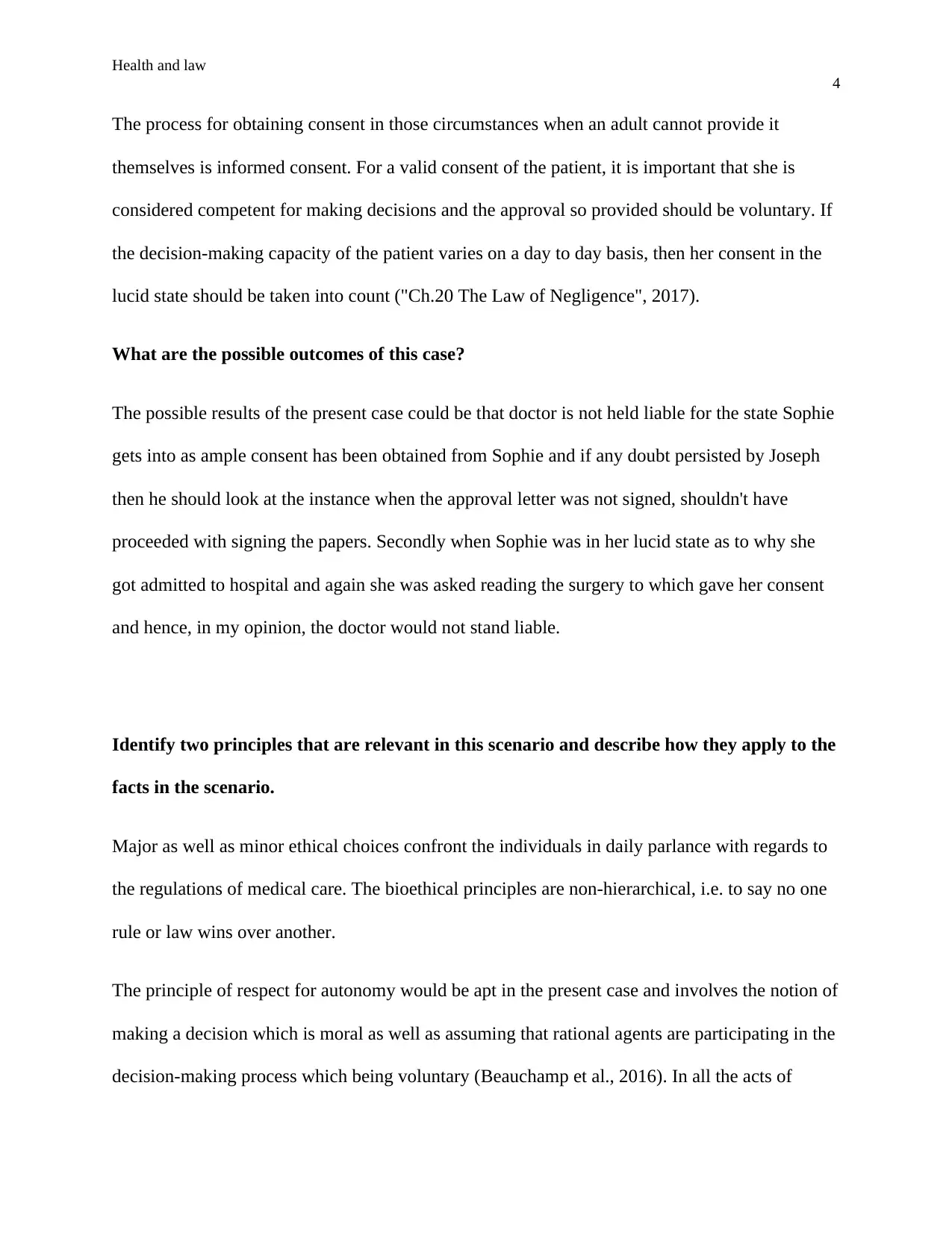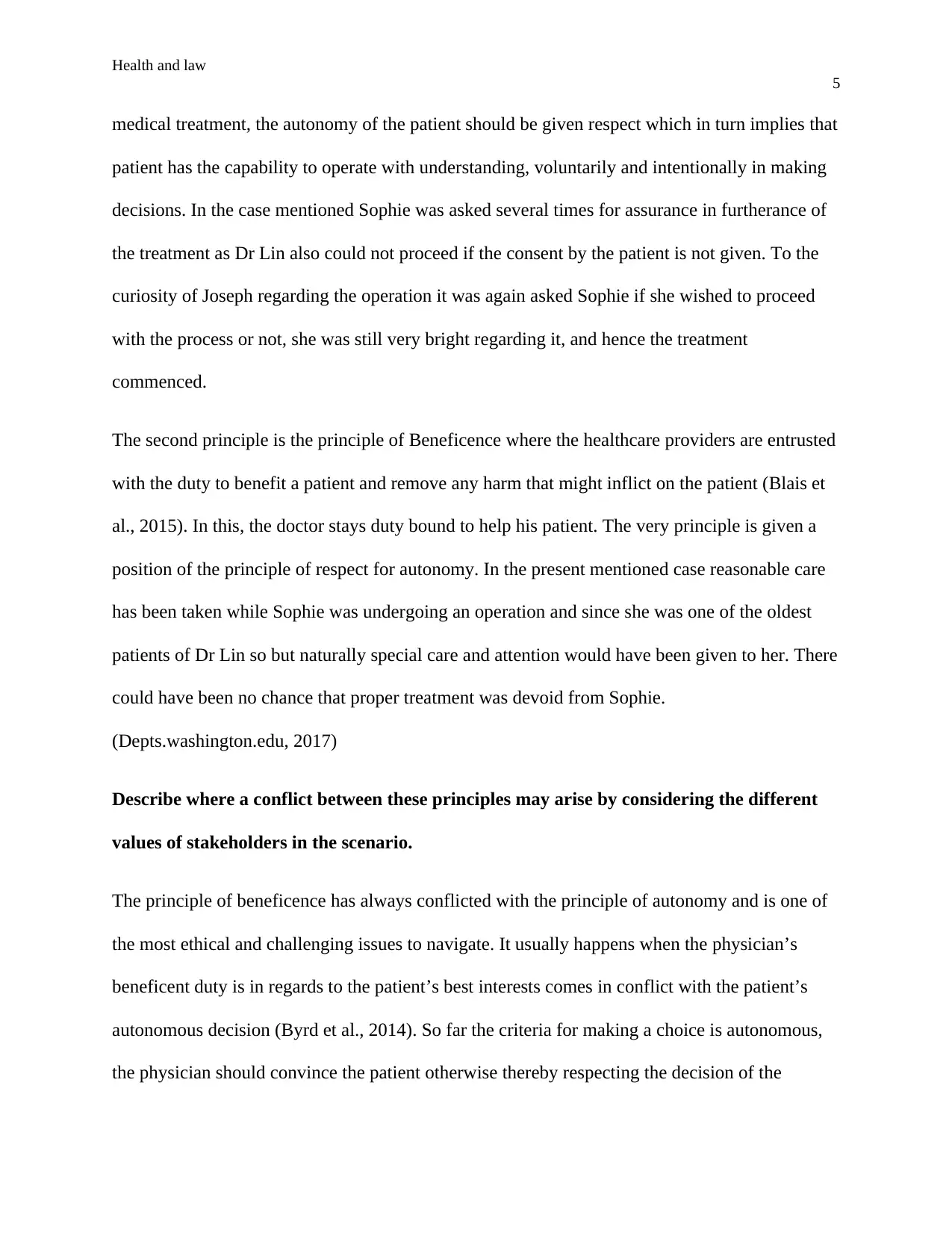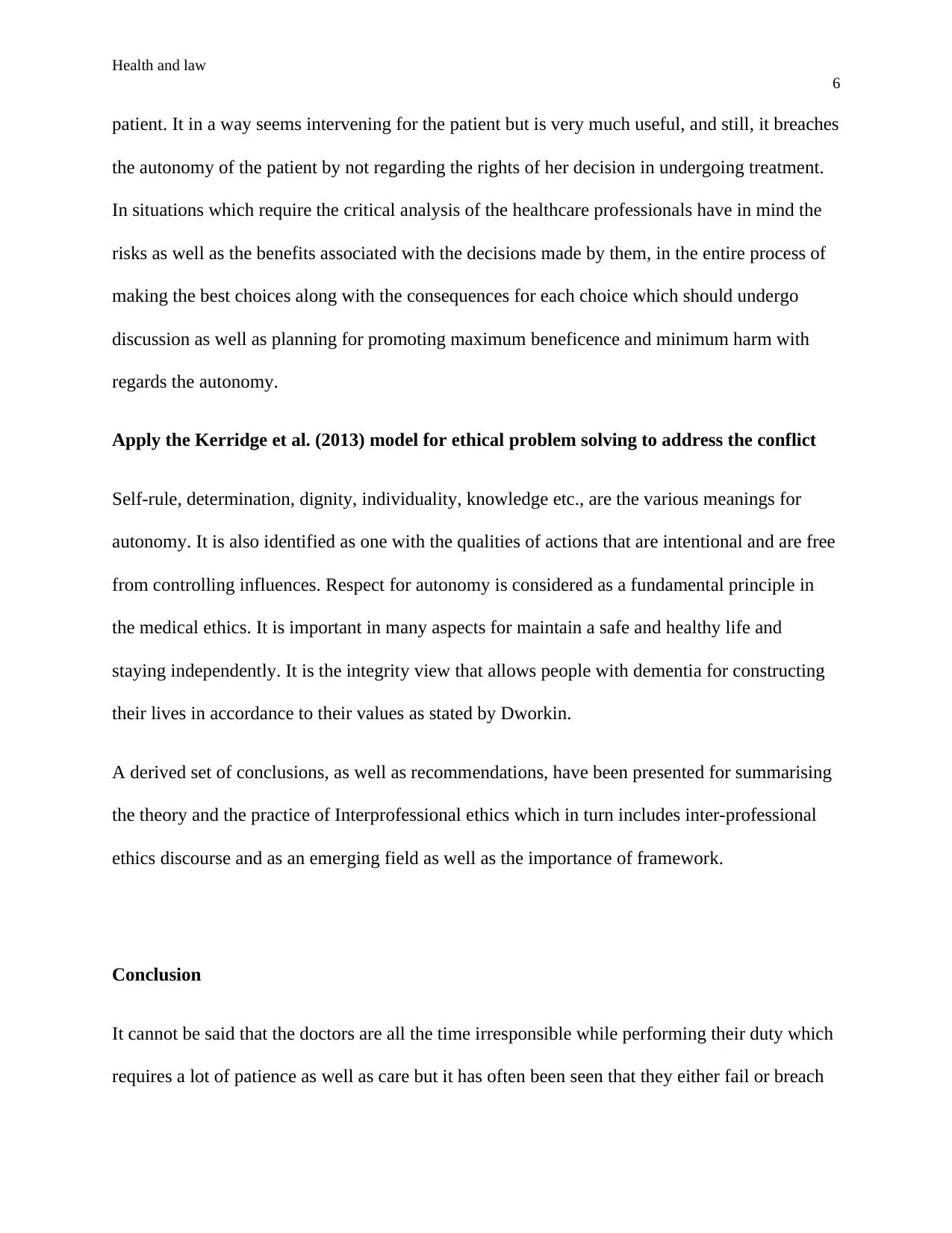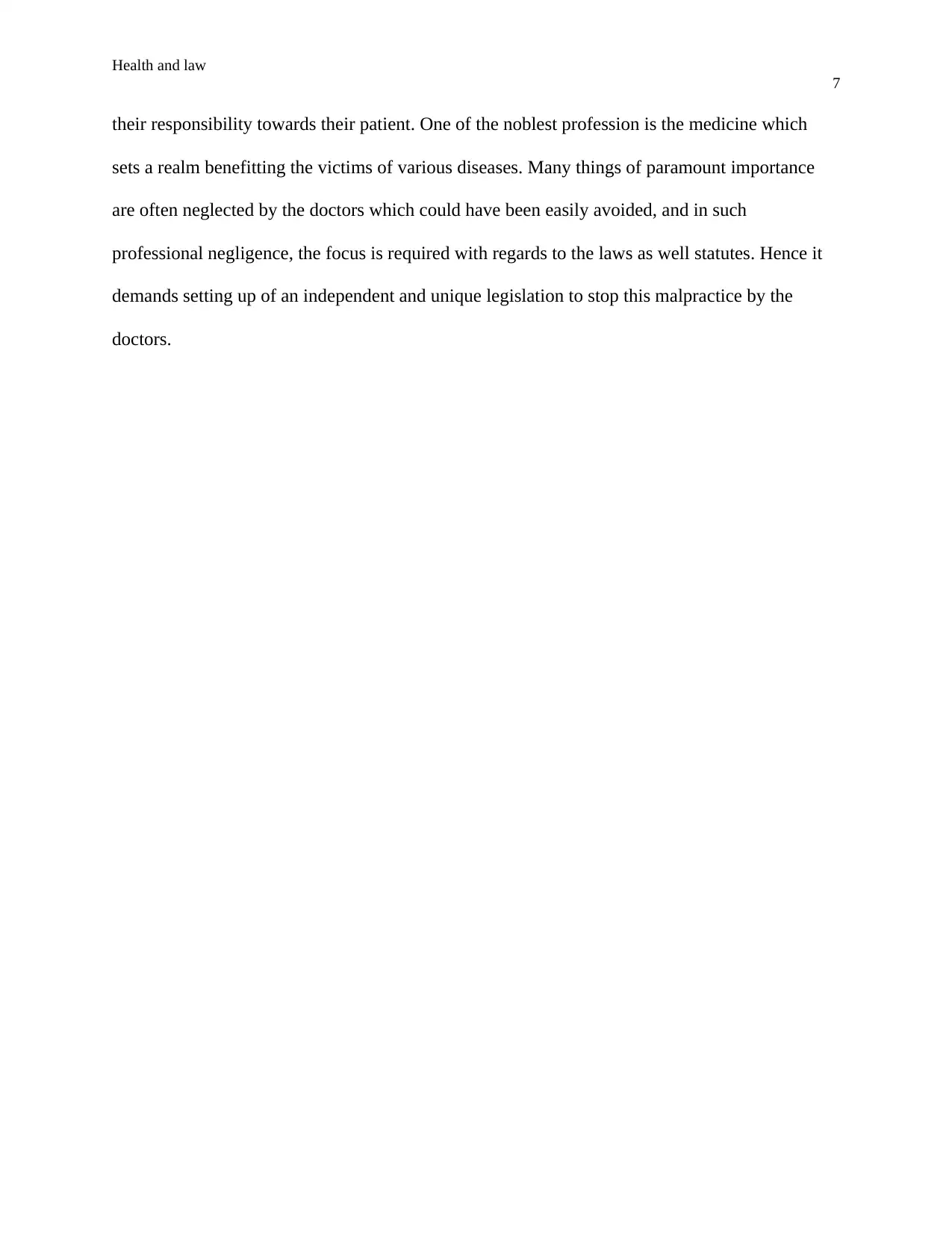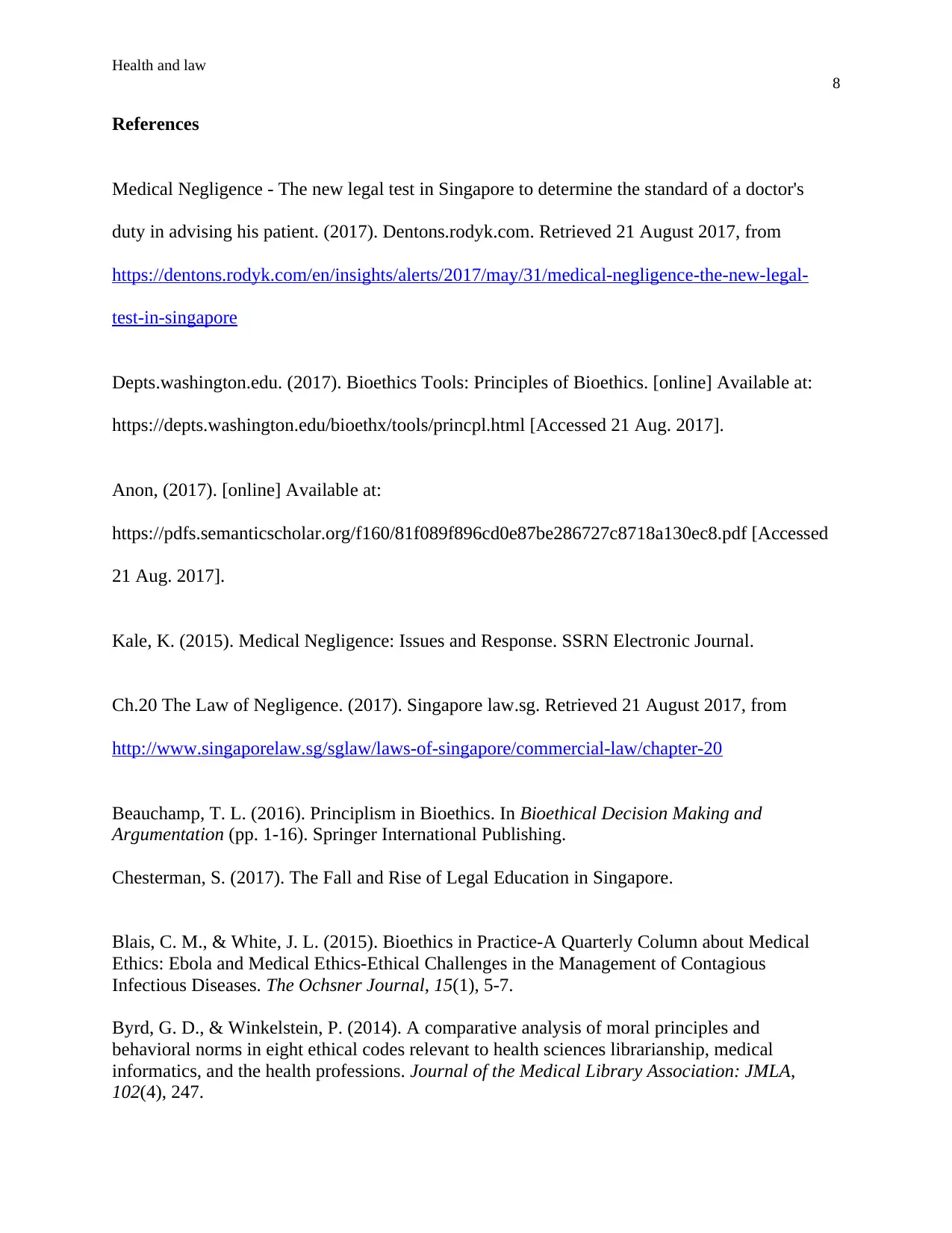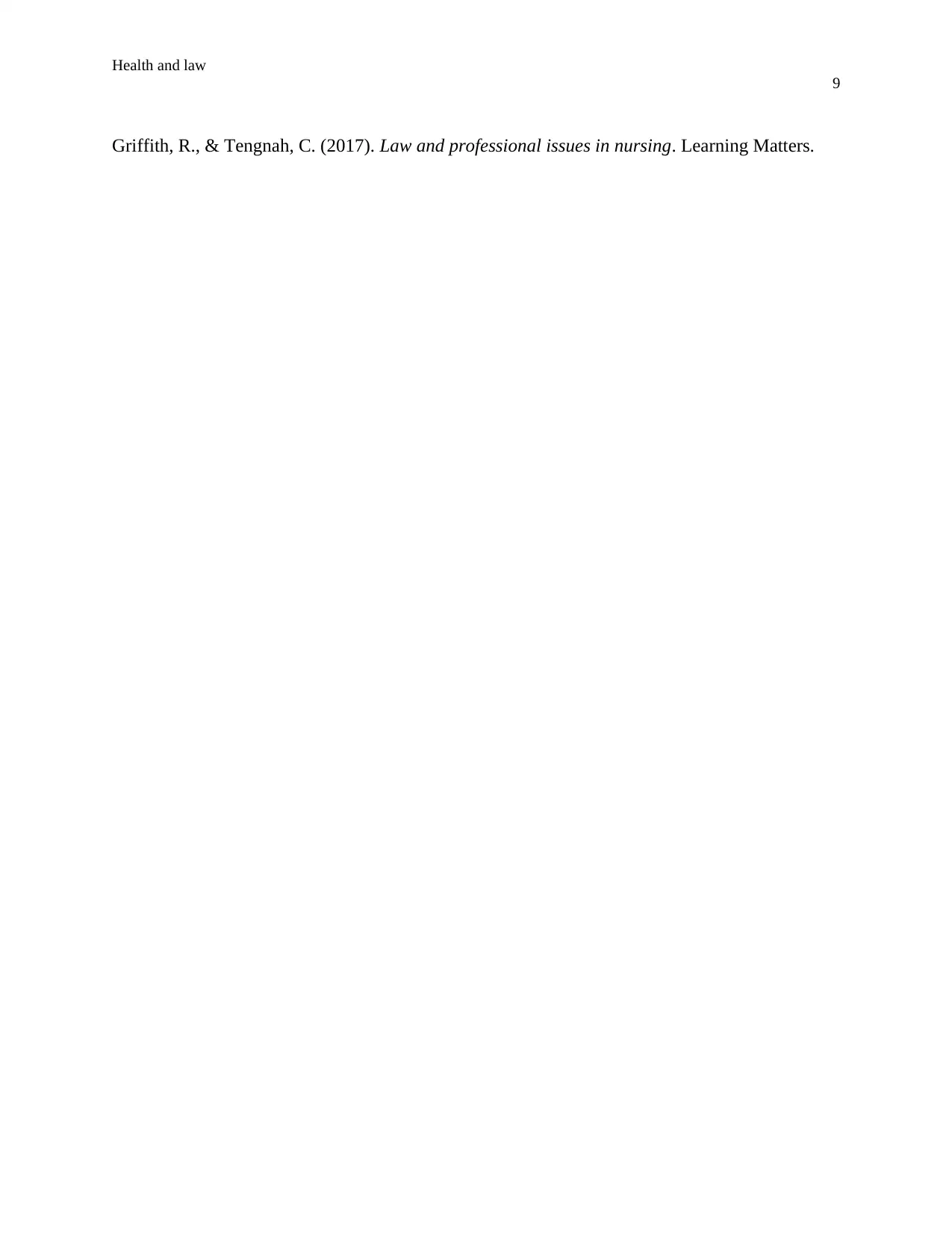The assignment content describes the scenario where Sophie was admitted to hospital and asked for her consent before undergoing surgery. The doctor, Dr. Lin, ensured that Sophie understood the treatment and gave her consent. In my opinion, the doctor would not stand liable as Sophie was in a lucid state and gave her consent. Two principles relevant in this scenario are the principle of respect for autonomy, which emphasizes the patient's right to make decisions about their own body, and the principle of beneficence, which requires healthcare providers to benefit patients and remove any harm that might inflict on them. These principles may conflict when a patient's autonomous decision is not in line with what a doctor believes is best for the patient.
![[object Object]](/_next/static/media/star-bottom.7253800d.svg)
![[object Object]](/_next/static/media/star-bottom.7253800d.svg)
